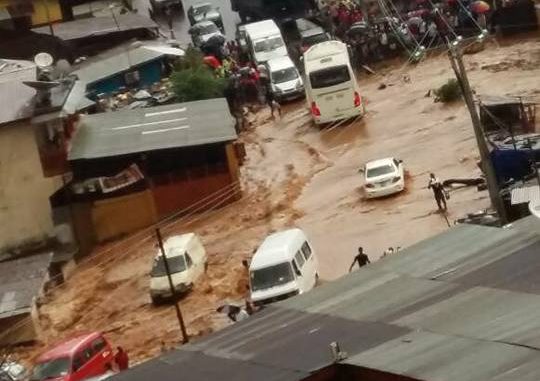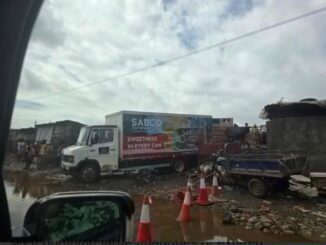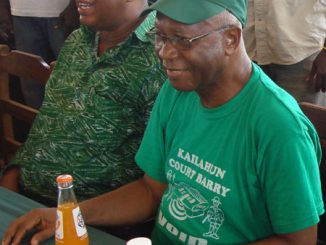
By Ranger
Monday 14th August 2017 will go down in the annals of the country’s history as the day that saw the largest loss of lives from a natural disaster that was exacerbated by human activities.
Mudslides and floods claimed the lives of more than 300 people. Their homes in Freetown were engulfed after part of Sugar Loaf mountain collapsed following heavy rain early on Monday morning. Many of the victims were still asleep in their beds when disaster struck. Construction of homes on the slopes of Mount Sugar Loaf has left large areas denuded of tree cover and susceptible to catastrophic landslides.
The town of Regent with Mount Sugar Loaf nearby is named after King George IV from his time as Prince Regent in the early 19th century when Britain was returning freed slaves to the west African colony from its former American colonies after abolishing slavery in 1807.
Another 3,000 people are estimated to have lost their homes. Ishmael Charles, a charity worker for the Healey Relief Foundation and Caritas Freetown, told the BBC words could not do justice to the scale of the tragedy. “Of course you will see a huge number of people crying with those who have lost their family members,” he said. “It’s very difficult to paint what the reality looks like, because it’s more scary and very sad and disastrous than anyone can be able to describe.”
In the worst hit area, the Regent district, where dozens of houses were submerged when the hillside collapsed at about 06:00 GMT, those who survived spoke of the family members they had lost – or still hoped to find alive.
“My wife is dead. My children are all dead. This morning my children and I talked before I left for work. One of them even chose the socks I should put on,” a man called Abdul Malik Bangura told the BBC.
Another woman, called Adama, said she was still searching for her baby. “We were inside. We heard the mudslide approaching. We were trying to flee. I attempted to grab my baby but the mud was too fast. She was covered, alive. I have not seen my husband, Alhaji. My baby was just seven weeks old.”
A man said he had left early in the morning to buy bread. When he returned, his wife, children, siblings and in-laws were all dead.
Mohamed Sinneh, a morgue technician at Freetown’s Connaught Hospital, told news agency AFP he had counted more than 300 bodies on Monday – and said more had been taken to private morgues. Red Cross spokesman Patrick Massaquoi told the news agency that 312 people were confirmed dead and warned the toll could rise further. The toll does not include those buried alive in their homes as they slept. More bodies are expected to be found as floodwaters recede.
Flooding is not unusual in Sierra Leone. Fatmata Sesay, who lives on the hilltop area of Juba, managed to survive the mudslide after she and her family were woken by the pounding rain. It was then they realised their home was submerged in water. “I only managed to escape by climbing to the roof of the house when neighbours came in to rescue me,” she told AFP. “We have lost everything and we do not have a place to sleep.”
BBC Weather’s Tomasz Schafernaker explains why Sierra Leone has been hit with torrential rain and mudslides. Flooding is not unusual in Sierra Leone, where unsafe housing in makeshift settlements can be swept away by heavy rains. The rains often hit areas in and around Freetown, an overcrowded coastal city of more than one million people.
In 2015, Freetown endured deadly floods sparked by monsoon rains that killed 10 people and left thousands more homeless.



